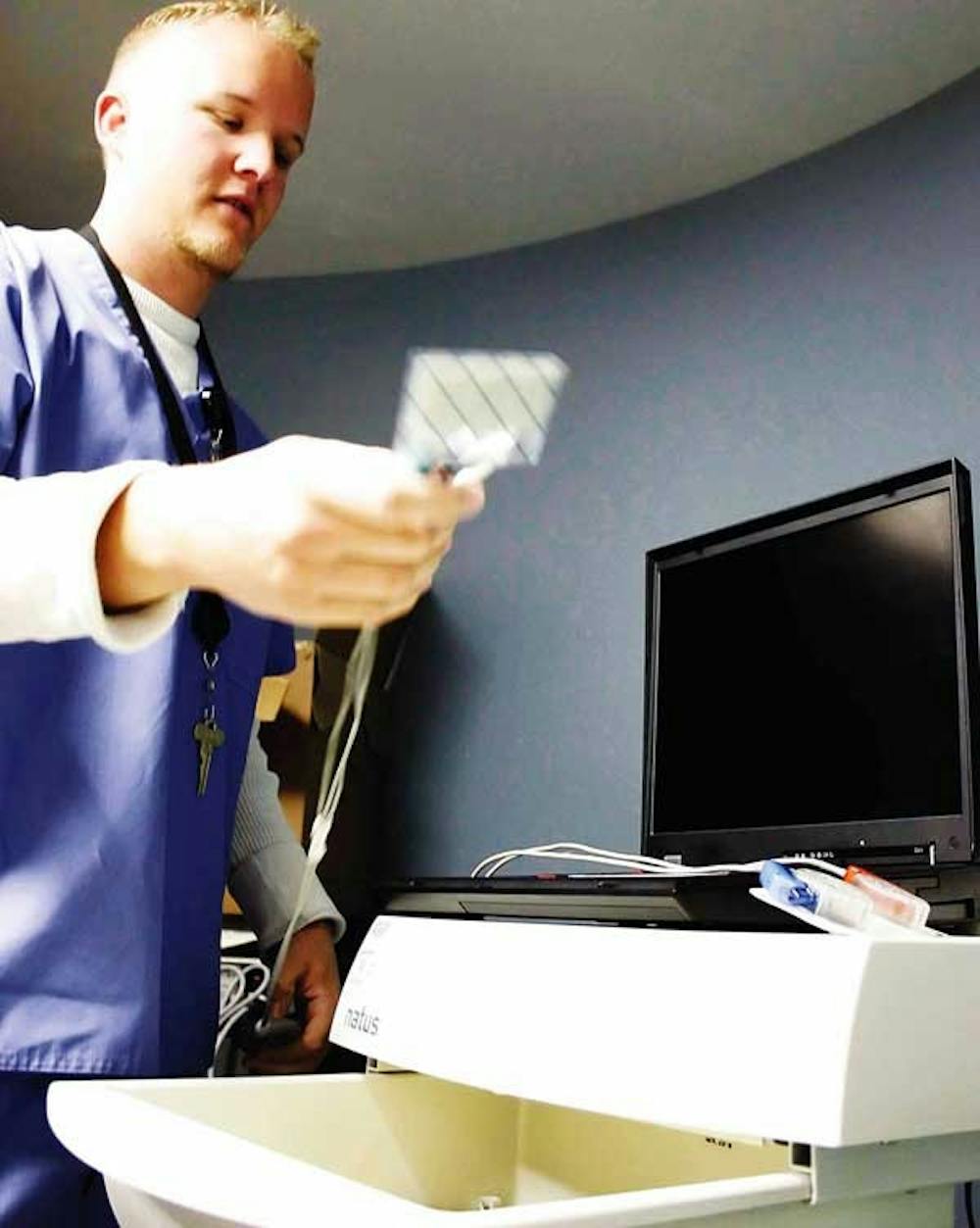by Ashleigh Sanchez
Daily Lobo
Student Cody Grassham wrapped a blanket tightly around a squirming newborn.
Within seconds, the baby quieted and Grassham went to work, attaching small sensors and earphones to the sleeping infant.
Grassham is a newborn-hearing screener at UNM Hospital, part of a team that tests every child born at the hospital for hearing problems.
Get content from The Daily Lobo delivered to your inbox
"The earlier a hearing problem is diagnosed and treated, the better the chance that person will develop normally - physically and socially," Grassham said.
Alumnus Andre Roybal, also a hearing screener, said the hospital screens about 4,000 babies a year.
"The rate of hearing loss we find is about 2 percent, which is lower than the national average of 3 percent," he said.
Roybal said hearing screenings are required for every newborn in the state.
Three sensors connected to the screening machine are placed on the babies, and plastic earphones are placed over the their ears.
"The machine will play very rapid clicking noises at 35 (decibels)," Grassham said. "The sensors measure the brainstem responses in the baby, and the machine displays those results."
Grassham said the test doesn't measure the hearing. It issues a pass or refer result, he said.
"When babies refer, we schedule them for an outpatient appointment with us," he said.
Grassham said referred babies usually don't have hearing loss. Debris in the ear canal or a fussy baby can result in a referral, he said.
"We need the babies as quiet as possible," he said. "Ideally, we want them to sleep."
To create a calm environment, the screeners work in a room with low lighting and often hold the babies if they become fussy.
"We screen the babies in the nursery every morning, every day of the year," Grassham said. "We also conduct screens in the special care nurseries."
Special care nurseries are for babies who need extra medical care, he said.
Roybal said the team has outpatient appointments for babies who did not receive or pass the initial screening or who have potential risk factors for hearing loss, such as family history.
"It's a whole program," he said. "We are the only ones in the state who have a team dedicated to this."
The newborns and their families are not the only ones who benefit from the program.
Grassham said the experience helped him figure out what field to pursue in his career.
"Because of this job, I've realized that I want to work with babies in the intensive care," he said. "This is one of the only volunteer programs in the hospital where you get this much patient interaction, so it's great for our volunteers, too."
Student Sachi Salazar, a volunteer with the program, said the experience will help her get into a good graduate program.
"I really want to be an audiologist," she said. "There are no audiology programs in New Mexico, so it's hard to get experience in the field."
Students interested in volunteering at UNM Hospital should call Volunteer Services at 272-2356 for more information.






